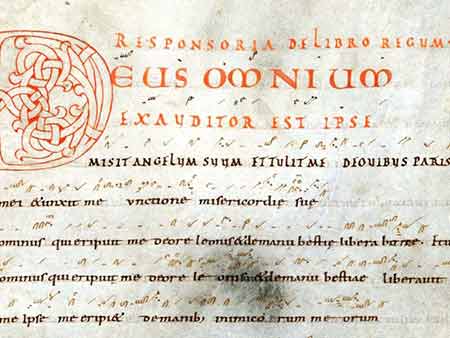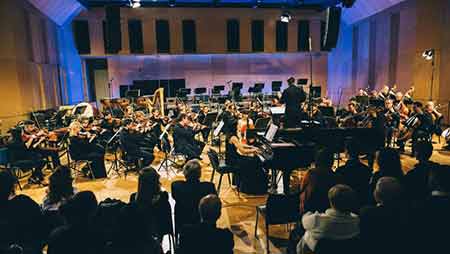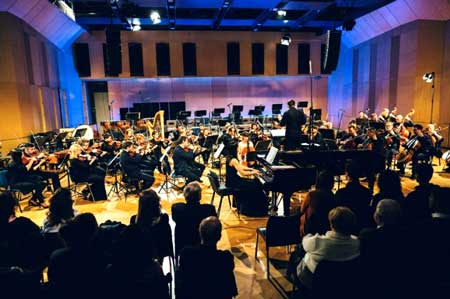CALL FOR PAPERS!
INTERNATIONAL MUSICOLOGICAL CONFERENCE
THEME: Ivan Zajc (1832-1914): Musical Migrations and Cultural Transfers in the ‘Long’ 19th Century in Central Europe and Beyond
PLACE AND DATE: Zagreb, Croatia, October 16-18, 2014, the Palace of the Croatian Academy of Sciences and Arts, Zrinjski trg 11
KEYNOTE SPEAKERS: Richard Taruskin (Berkeley), Stanislav Tuksar (Zagreb), Harry White (Dublin)
ORGANIZERS: Croatian Musicological Society and the Department for History of Croatian Music of the Croatian Academy of Sciences and Arts
The Conference is organized on the occasion of the 100th anniversary of the death of Ivan Zajc (1832-1914), the key personality of Croatian music during the last third of the 19th century.
Zajc was trained in his home town of Rijeka and at the Conservatory in Milan (1850-55). He was active as a teacher and conductor in Rijeka (1855-62), as an operetta composer, pedagogue and conductor in Vienna (1862-70), and as the Director of the Croatian National Theatre Opera, and Director and teacher at the Croatian Music Institute School in Zagreb (1870-1908). Zajc left a huge opus of more than 1100 compositions in various areas of art music. He composed church music (19 Masses, c. 50 sacral and secular oratorios and cantatas), solo songs (c. 170 on Croatian, Italian and German texts), c. 300 choral works, c. 80 orchestral pieces, and about 100 chamber and piano works. Zajc remains most significant for his contributions to the musical stage: 19 operas, 26 operettas and 22 sets of incidental music.
THEMATIC AREAS
The first proposed thematic area is the life, oeuvre and importance of Ivan Zajc. We welcome contributions which will analyze and elucidate aspects of Zajc’s individual works and his oeuvre at large, as well as those which will deal with the range and scope of his activities within the 19th-century Croatian national movement. Zajc’s varied career included composing the mythological-historical operatic trilogy (Mislav, Ban Leget, Nikola Šubić Zrinjski) and other important works for musical stage, and serving as the organizer of professional ensembles and as an innovator in teaching methods at the Croatian Music Institute School. Equally welcomed will be contributions dealing with Zajc’s oeuvre and activities within the context of his time as well as the stricter national or broader central-European spaces.
The second proposed thematic area is the phenomenon of musical migrations, as is evident, for instance, in Zajc’s own life itinerary (Rijeka-Milan-Rijeka-Vienna-Zagreb). Musical migrations include temporary or permanent migrations or settling down of musicians (composers, performers, musicologists and music writers, instrument builders, etc.) and the transfer of musical artifacts (music sheets, music books, music instruments, documents, etc.) and ideas on music (by way of schooling, personal encounters, correspondence, stylistic and genre influences, etc.). Migrations can occur between native places or places of artistic creation and other locations inside and/or outside local, regional and/or national areas. In the case of Zajc, these migrational phenomena are more strictly located in the central-European area, but – for example – the sporadic presence of his compositions in the USA and Japan in the 19th and 20th centuries expands the possibilities for research in this area. This in turn leads to an understanding and evaluation of the idea of musical migrations beyond Zajc’s immediate geographic and temporal frames and determinants.
The third proposed thematic area concerns cultural transfer in the field of music, as well as in those areas of arts and culture which were traditionally connected with music, such as literature, theatre, visual arts, etc. As both in today’s processes regarding the intensification of cultural interactions on a global scope, and – with various methods, with different accents and forms of realization – in Zajc’s era during the second half of the 19th and the beginning of the 20th century, musico-cultural transfers encompass the influx and flow of information concerning general and individual art phenomena and facts. This also includes how such ideas are accepted, ignored, or rejected as well as their impact and dominance. In the case of Zajc a real whirlpool of such phenomena was created through the interaction and permeation of Verdian operatic concepts, Viennese operetta paradigms, fashionable flirtations with Orientalisms, ideas and emotions surrounding patriotic and national issues, direct social activities in the areas of music education and training, the building of national institutions such as national opera, the supporting of musical amateurism, etc.
Taking into account that Zajc’s life and the end of the so-called belle époque coincide in their endings in 1914, the temporal frame of the conference subjects was largely determined with the end of the ‘long’ 19th century and the beginning of WWI, but in investigating and presenting the second and the third thematic areas the organizers are encouraging participants submitting free papers to not feel bound by any strictly prescribed temporal, spatial and/or cultural limitations.
SUBMISSION OF PROPOSALS AND DEADLINES
Proposals should be submitted per e-mail or by regular post with an abstract in Croatian or English (300-400 words) at:
Croatian Musicological Society, Opatička 18, 10000 Zagreb, Croatia
Website address: www.hmd-music.hr
The deadline is: November 15, 2013.
The list of accepted participants will be announced by December 31, 2013.
A certain number of participants from Croatia and abroad will be invited ad personam (up to 20). The number of free papers and participants is limited.
LANGUAGES
Official languages of the conference will be Croatian and English.
FEE AND SOJOURN DETAILS
Participants with free papers coming from outside of Zagreb are paying for the expenses of accommodation and sojourn by themselves. They also pay the fee of 70 Euro or the equivalent value in local currency (HRK).
The organizers will provide midday meals during the conference for all participants.
It is expected that travel expenses to and from Zagreb will be covered by all participants themselves.
ORGANIZING COMMITTE
Dr. Vjera Katalinić, Department for History of Croatian Music of the Croatian Academy of Sciences
and Arts
Dr. Koraljka Kos, Member of the Croatian Academy of Sciences and Arts
Dr. Sanja-Majer-Bobetko, Department for History of Croatian Music of the Croatian Academy of
Sciences and Arts
Dr. Nada Bezić, Croatian Music Institute, Zagreb
Dr. Stanislav Tuksar, Department of Musicology, Academy of Music, University of Zagreb, Member
of the Croatian Academy of Sciences and Arts
PROCEEDINGS
The organizers are planning to publish multi-linguistic Proceedings of the conference.
CONTACTS
Please send all correspondence and queries to the official address or the website of the Croatian Musicological Society, as indicated above, or directly to the members of the Organizing Committee.







